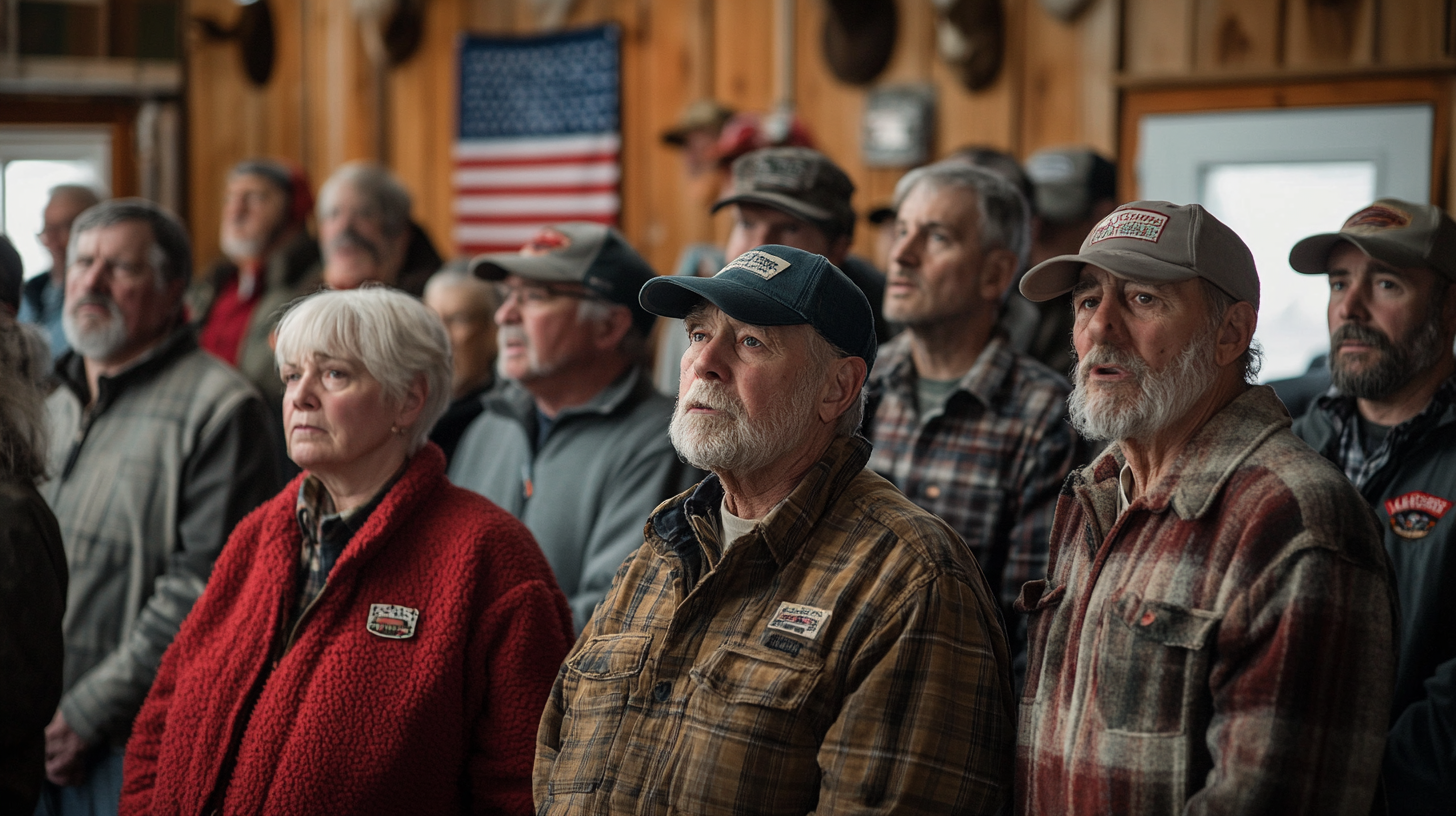DIRTY LEW
A Tradition of Hand-Counting Ballots in Maine
A Tradition of Hand-Counting Ballots in Maine
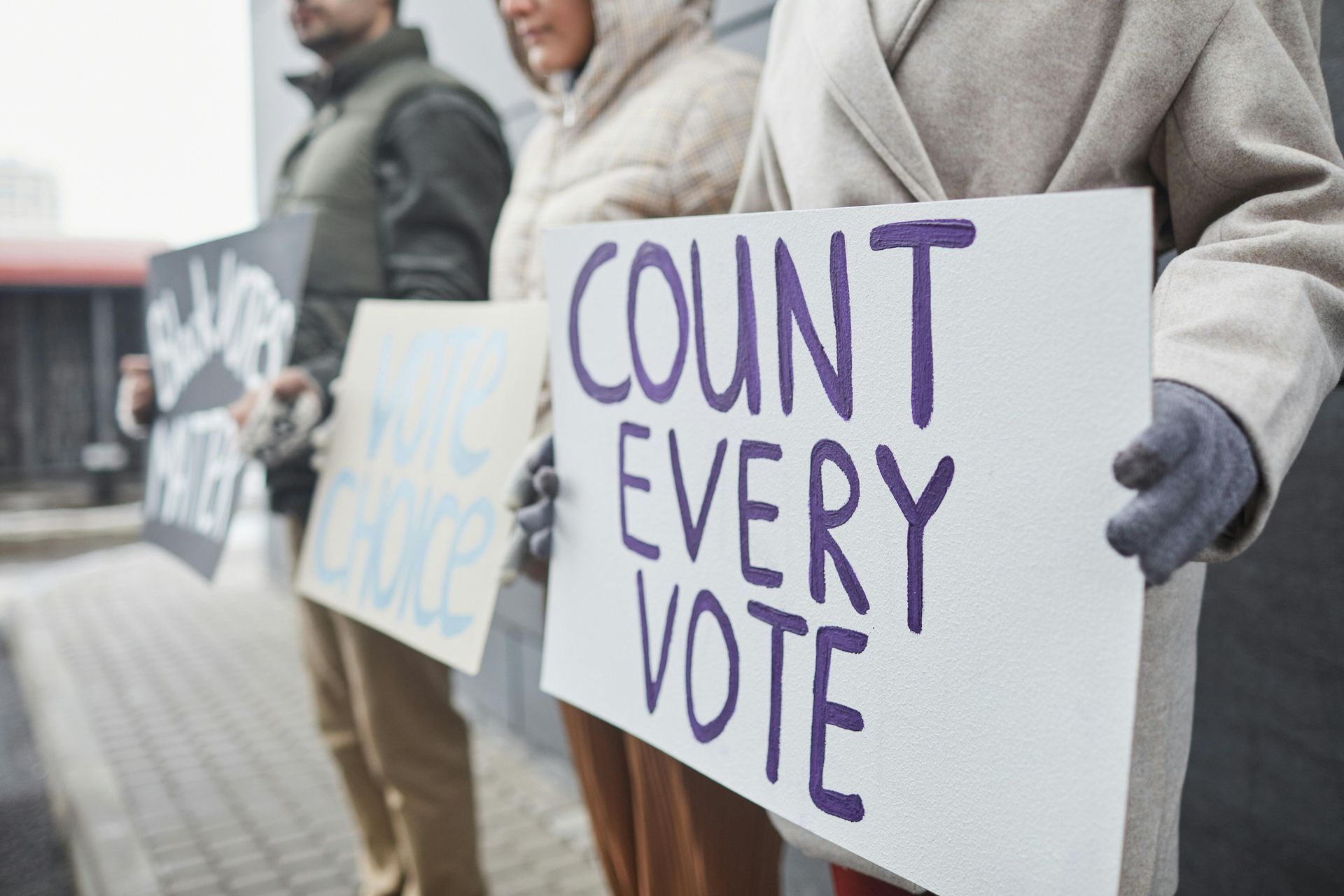
In New Vineyard, Maine, a small town of about 700 residents located in Franklin County, Election Day is about more than just casting a vote—it's about tradition. When the polls close at 8 p.m. on Nov. 5, six trained election clerks will begin the labor-intensive process of hand-counting each ballot, a practice that stands in contrast to national trends toward electronic tabulation systems.
Hand-Counting in a Digital Age
As many municipalities across the U.S. adopt technology to streamline the voting process, a third of Maine’s towns—like New Vineyard—continue to hand-count ballots. On Election Day, these clerks will face a hefty task: tallying votes for eight races covering county, state, and federal positions, as well as five state referendum questions. Each of these votes will be counted independently—not once, but twice—before being certified.
Election clerks will work in pairs, usually with one Democrat and one Republican to ensure impartiality. They will carefully review batches of 50 ballots, calling out the voter’s choices for each race and question aloud. For example, they may state, “State Senate, Jane Doe; Question 1, Yes,” while each clerk records the results on separate tally sheets. If their counts don’t match, they must go back and recount until the figures align.
Why Some Towns Stick to Hand-Counting
While hand-counting ballots may seem outdated in today’s digital world, towns like New Vineyard are committed to the process. The town even uses an old-fashioned wooden ballot box for each election. New Vineyard is one of 150 towns in Maine—approximately one-third of all voting jurisdictions in the state—that still hand-counts ballots. Each of these towns has fewer than 750 registered voters, but the average number of voters is much lower, around 251.
“Hand-counting has been a tradition here for a long time,” says Michelle Beedy, New Vineyard’s town clerk. “It’s a lot of work, but it’s something the town values.” Despite the nostalgia, Beedy admits she would like to see New Vineyard switch to voting tabulation equipment, like the hand-fed optical scanners that most Maine municipalities use. “It just would make counting a lot easier,” she says.
The Benefits of Tabulation Devices
Most of Maine’s 330 cities and towns use optical scanners, which read hand-marked paper ballots and quickly tabulate the votes. These devices, made by Election Systems & Software (ES&S), store data on a memory device and immediately alert voters if their ballots contain errors—such as selecting too many candidates in a race or improperly marking a bubble. The result is a faster, more accurate tally that can significantly reduce the margin for human error.
Maine has been using these devices since 2012, and the state provides them to municipalities at no cost. Secretary of State Shenna Bellows highlights the benefits of adopting this technology, particularly in larger towns where hand-counting could take several hours—or even days—to complete. “The data demonstrates that hand counting increases the possibility of human error, and it takes a lot longer to count ballots when you’re doing it by hand,” Bellows said.
Decline in Hand-Counting Over the Years
In the past 12 years, the number of Maine towns opting for hand-counting has steadily declined. In 2012, only about one-third of Maine’s towns used optical scanners, while the remaining two-thirds counted ballots by hand. Today, the ratio has reversed, with most towns using hand-fed optical scanners and only a third sticking with manual methods.
Despite the shift toward digital tabulation, New Vineyard continues to hand-count ballots, along with several other small towns. Maine is one of only a handful of states where elections are managed at the municipal level, rather than by the county. Nationwide, only about half a percent of registered voters have their ballots hand-counted. In Maine, that number jumps to 4 percent, or roughly 37,000 voters, underscoring the state’s unique approach to election management.
Studies Show Scanners Are More Accurate
Research consistently shows that tabulation devices like optical scanners are not only faster but also more accurate than hand-counting. A peer-reviewed study published in the Election Law Journal compared hand-counted ballots with those processed by optical scanners during Wisconsin elections. The results showed that scanning devices produced more accurate vote counts than human counters. Other reports, including studies from New Hampshire and Nevada, have similarly concluded that hand-counting introduces higher error rates compared to machines.
Bellows also supports the use of optical scanners for larger municipalities, citing both speed and accuracy as critical factors in modern elections. “Mainers are accustomed to receiving results on election night, and the tabulators advance the speed of the results as well as the accuracy,” she said.
The Appeal of Tradition for Small Towns
For many small towns in Maine, though, the appeal of hand-counting goes beyond accuracy or speed. It’s about maintaining a tradition that ensures transparency and community involvement in the election process. “We understand that they prefer the old-fashioned hand count, recognizing that it’s really important that they be as scrupulous as possible in ensuring the accuracy of that count,” Bellows added.
Pam Smith, president and CEO of Verified Voting, also notes that while hand-counting is feasible for smaller jurisdictions, it becomes increasingly difficult as the number of voters increases. In larger towns, the process becomes more expensive and time-consuming, often requiring additional resources and personnel to complete the count in a timely manner. “The larger a jurisdiction gets, the more difficult it is to ‘cautiously and carefully’ tabulate votes,” Smith said.
The Cost of Hand-Counting in New Vineyard
In New Vineyard, election clerks will work late into the night to ensure every vote is counted accurately. Two clerks will handle absentee ballots throughout the day, while four others will start counting ballots as soon as the polls close. Each clerk is paid minimum wage, currently $14.15 an hour, and Beedy expects the counting process to take at least 14 hours. For a town with about 530 registered voters, the cost of hand-counting will exceed $700 for the six clerks alone—not including additional expenses for Beedy and the election warden.
“We’re responsible for every single ballot,” Beedy explains. “You miss one number, and your whole tally sheet is off. So you could be back trying to find one ballot out of 800.” Despite the long hours and potential complications, Beedy expects the process to go smoothly. “We’ll probably be counting until 11 p.m. if all goes well,” she said.
The Future of Voting in Maine
As technology continues to evolve, more towns in Maine may opt to adopt optical scanners to streamline their voting processes. The state has made it easy for municipalities to transition by offering the machines at no cost and ensuring that every jurisdiction has access to ballot-marking devices for voters with disabilities.
While the future may see fewer towns counting ballots by hand, the tradition remains alive in places like New Vineyard, where the community values the transparency and personal involvement of manual counting. Whether through high-tech optical scanners or the scrupulous work of election clerks, Maine’s voting system remains a model of both tradition and innovation.
Preserving a Way of Life
The contrast between Maine’s hand-counting tradition and the efficiency of optical scanners highlights the state's unique approach to elections. As more towns transition to modern voting methods, others remain committed to the painstaking but transparent process of hand-counting. For communities like New Vineyard, it’s not just about counting votes; it’s about preserving a way of life and ensuring that every ballot is counted by hand, just as it has been for generations.
This article was adapted from a piece originally published by The Maine Monitor. You can read the full story by Emily Bader and subscribe to their newsletter for regular updates on Maine news here.
Go to Comments' Board
Join the Conversation!
Ready to share your thoughts on what’s happening in Lewiston? Head over to the Dirty Lew discussion board and be part of the dialogue that’s shaping our community. Whether it’s local news, city issues, or just something on your mind, your voice matters. Jump into the debate, share your perspective, and connect with others who care about the Dirty Lew just like you.
Latest forum topics:
Click or Tap to Share
Submit Your Story
Do you have a story to tell? Submit your own article for review, and let your voice be heard in Lewiston. Whether it’s an opinion piece, a report, or a personal experience, we want to hear from you.
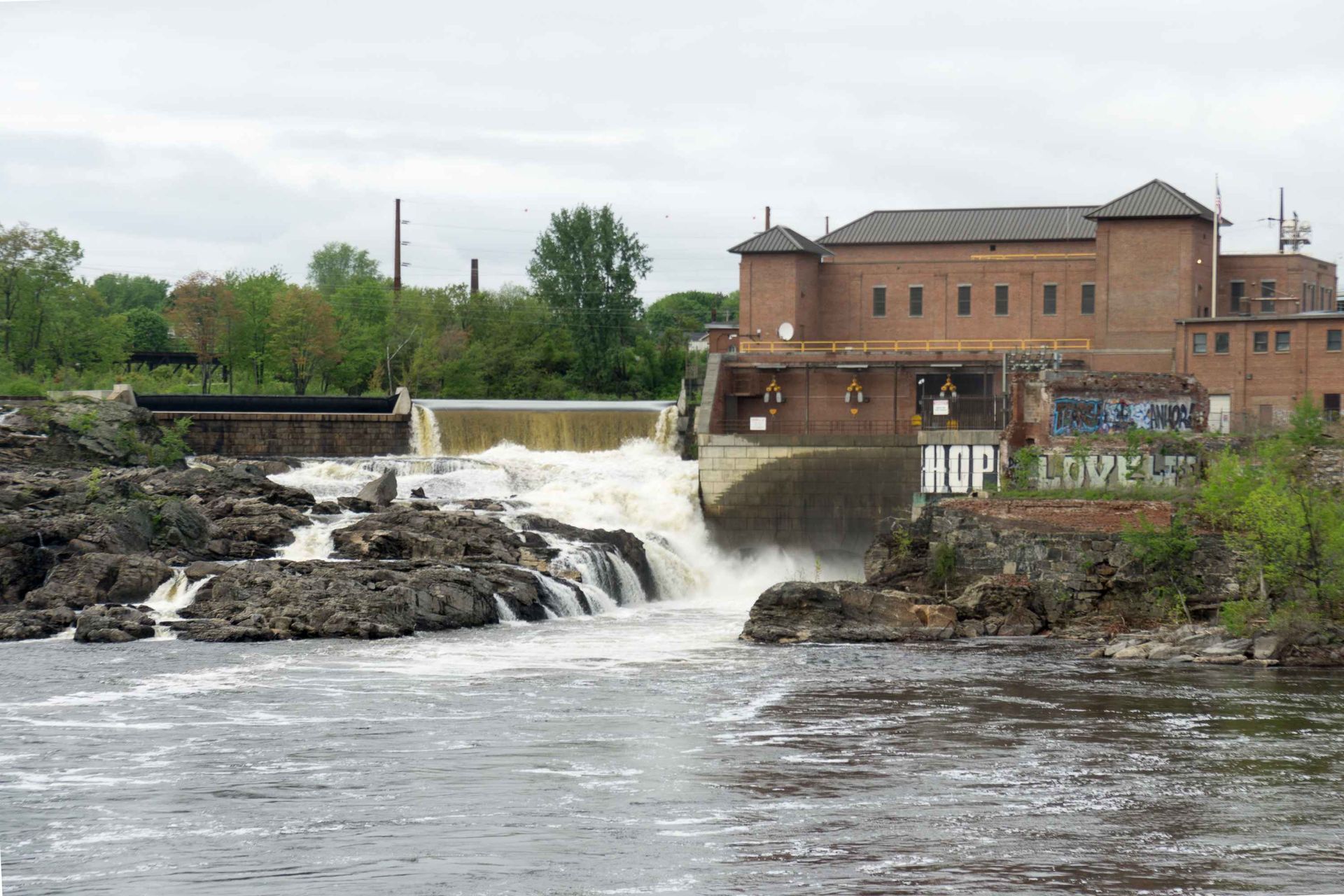
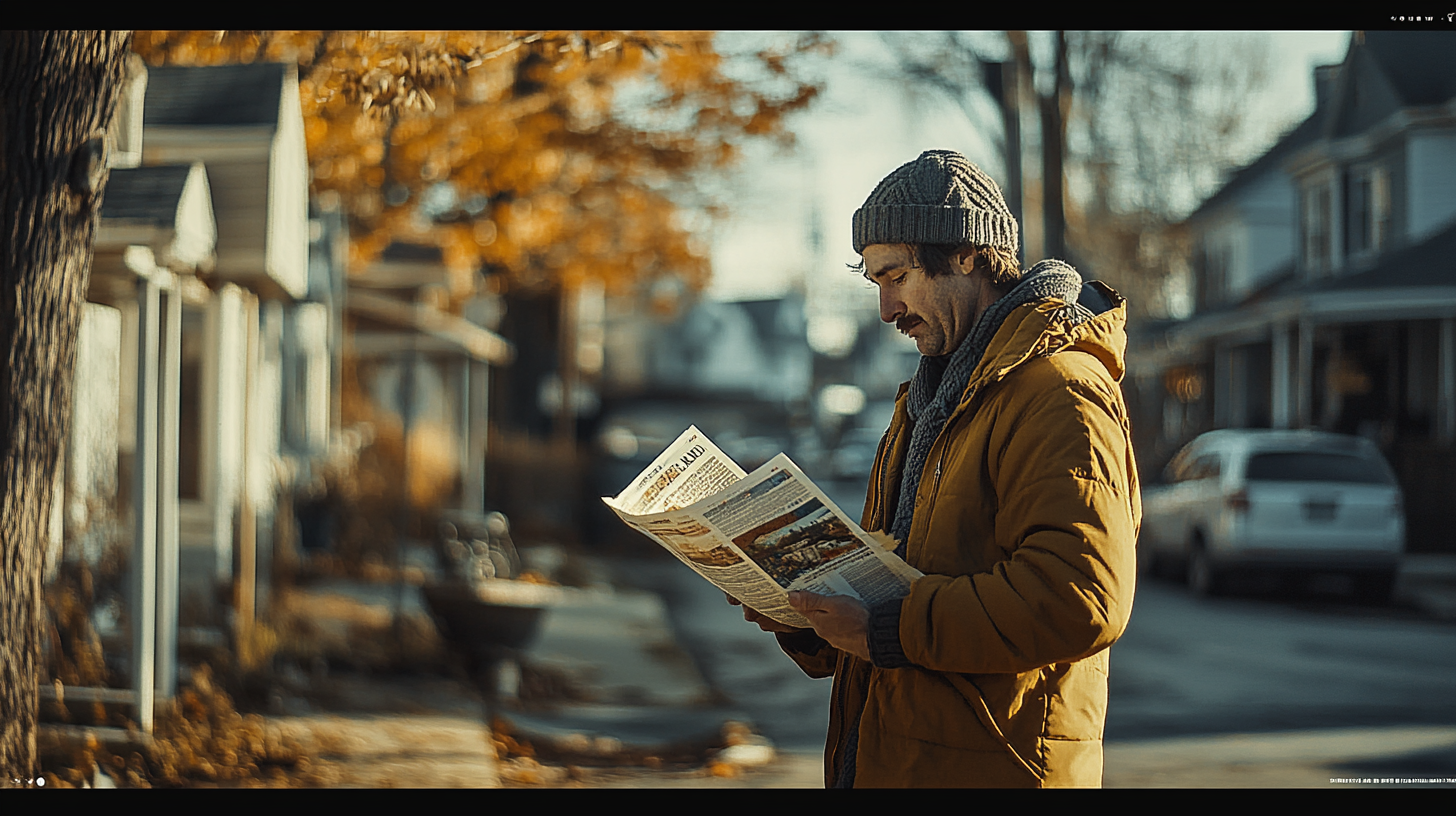

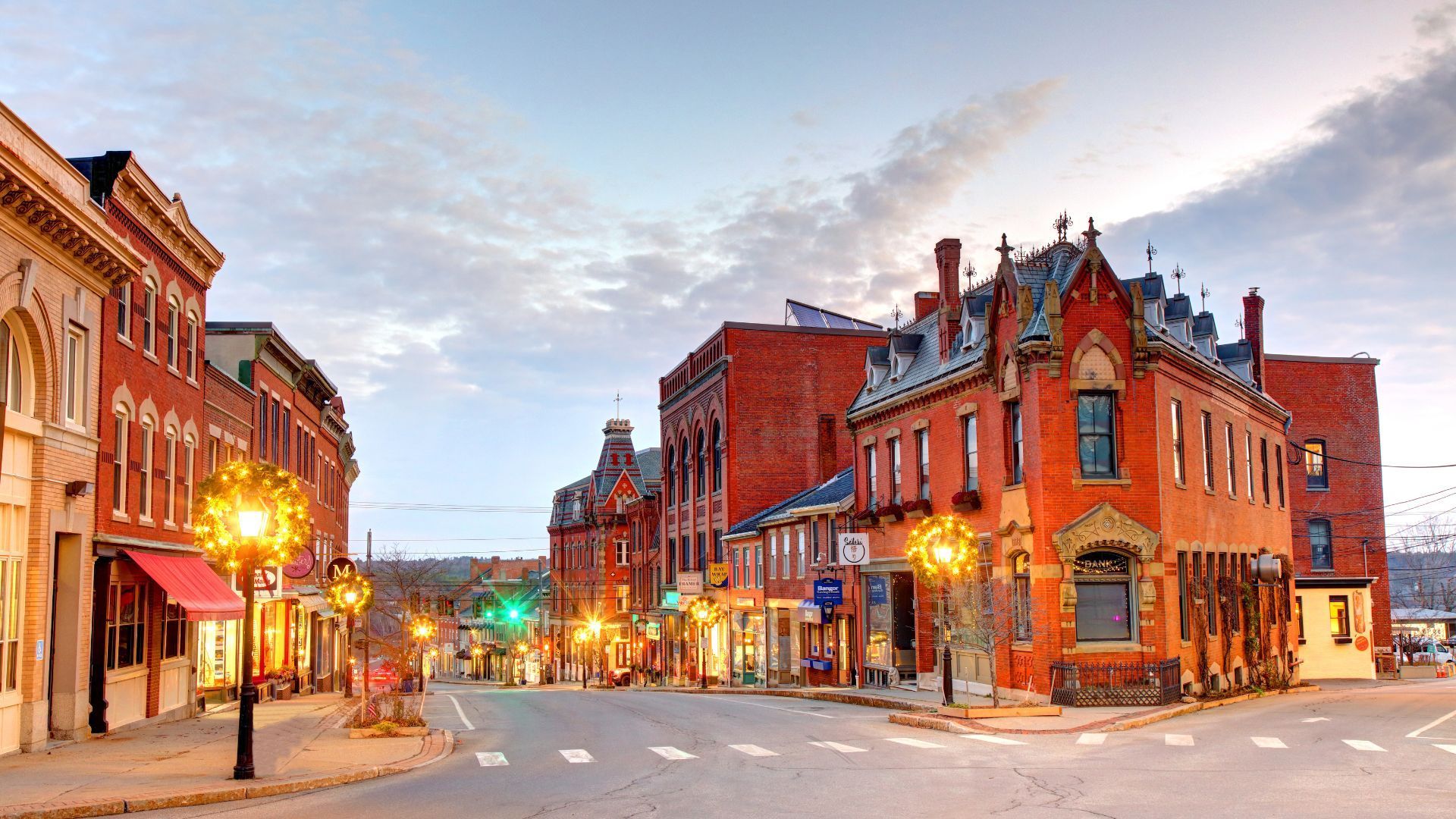
Submit Your Story
Do you have a story to tell? Submit your own article for review, and let your voice be heard in Lewiston. Whether it’s an opinion piece, a report, or a personal experience, we want to hear from you.
© Copyright 2024 | All Rights Reserved |
Dirty Lew

